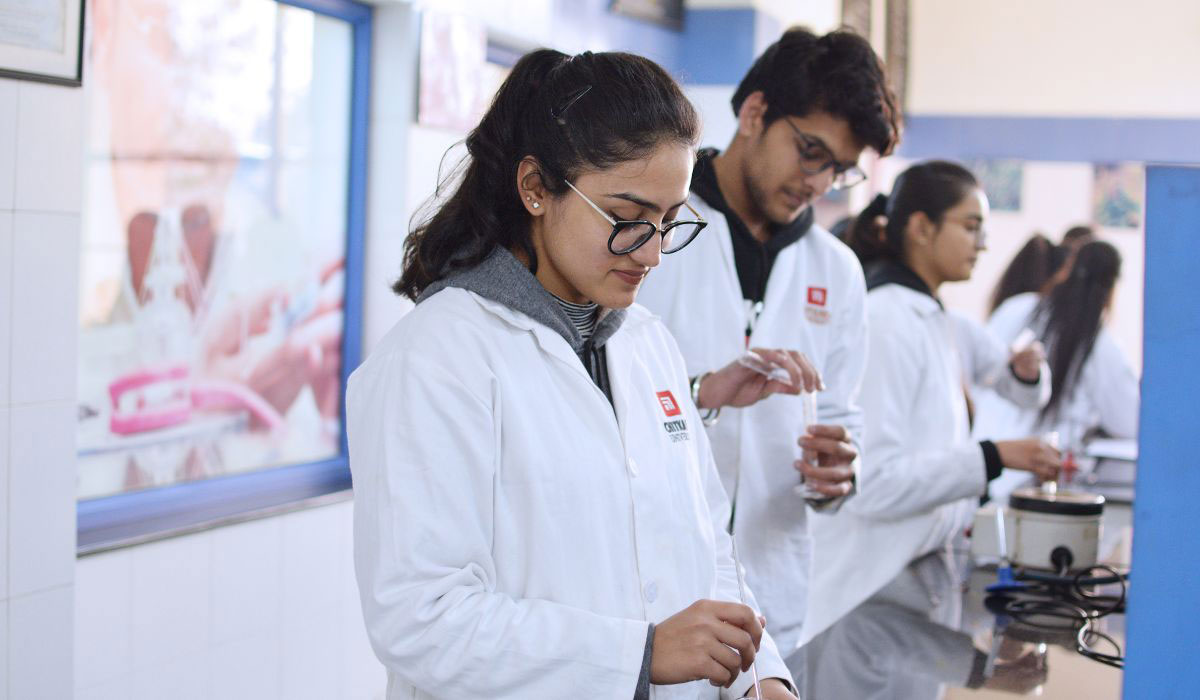For anyone brought up with any degree of curiosity about the origin of life and the intricate mechanisms involved in fertilization, development, and early growth, embryology brings a great deal of interest. An MSc in Embryology or Clinical Embryology could be said to be an advanced course that prepares students with refined science and practical knowledge in this most essential field of biomedical science. This degree program has provided an opportunity for you to pursue an academic career in teaching or research work, clinical practice in the field of reproductive medicine, or pursue a research career in the gynaecological field. Here’s what to expect from this advanced program.
Program Overview
Theoretical Knowledge Program
MSc in Embryology: an MSc in Embryology provides the intellectual scaffold for reproductive biology, cell biology, genetics, and endocrinology. Courses in anatomy and physiology of systems, molecular and cellular aspects of gametes and embryos, and principles underpinning IVF and other ART (e.g., ICSI) form the core of this knowledge foundation.
Specialization in Clinical Embryology:
As for the matter of MSc in Clinical Embryology, practical applications of embryological principles in clinics will be emphasized. Students will bring to the fore issues such as embryo culture, cryopreservation, micromanipulation, and the ethical and legal dimensions surrounding fertility treatments.
Practical Hands-On Experience
Laboratory Training: A significant portion of the MSc in Embryology is the hands-on training using state-of-the art laboratory techniques. Students are prepared to be proficient in the handling and culturing of gametes and embryos, to be able to carry out micromanipulation procedures such as ICSI, and to use advanced imaging to judge embryo development.
Clinical Exposure: Clinical tracks will have exposure to the actual process at fertility clinics where students get to see the real ART process from patient consultations up to lab procedures under close mentorship of experienced embryologists
Research Opportunities
The MSc in Embryology program usually involves a significant research component whereby students undertake original research projects. Not only does this further an understanding of certain embryological questions, but it also sharpens scientific inquiry, experimental design, data analysis, and critical thinking skills.
Ethical and Social Considerations
Clinical application poses deep ethical and social issues with which embryology is concerned. The MSc Program typically covers such issues to enable students to appreciate the impact of embryo research and assisted reproduction on personal and social lives. Areas of discussion by students may include genetic screening, selection of embryos, and ethical considerations on fertility preservation.
Career Prospects
A graduate in an MSc in Embryology or Clinical Embryology would be well-equipped for the many careers that are generally available. These could be in clinical practice as embryologists in fertility clinics, working directly in the ART processes. Others would opt for academia or industry in research oriented towards improved reproductive technologies or indeed developmental biology. Some graduates find themselves working with regulatory bodies or bioethics organizations, and this helps in developing policy and engaging in those ethical discourses.
In conclusion MSc in Embryology or Clinical Embryology is an exciting path into the intricate world of reproductive science. Combining theoretical knowledge, practical skills development, opportunities for research, and engagement in ethical considerations, this advanced program prepares students for impactful careers in both clinical and research settings. Whether a person intends to work in a fertility clinic, break new ground in research, or inform policy in reproductive health, the expertise and insights that this MSc imparts are extremely valuable. For anyone with an interest in the biological sciences who also wants to make a meaningful contribution to reproductive health, an MSc in Embryology could be just what is needed next.
Chitkara University: Begin Rewarding Journey with the 2-Year M.Sc in Clinical Embryology
Clinical Embryology M.Sc Program by Chitkara University is an approach to conceptual learning, targeting candidates who passionately desire to join the vibrant field of assisted reproductive technology. The two-year intensive course, in collaboration with Neelam Hospital, Punjab, shall equip the deserved student with the skills that render a confident embryologist and a leader in the health industry.
Program Structure and Learning Experience
Comprehensive Curriculum
The program is four semesters long, and the curriculum merges intensive theoretical, practical, and clinical knowledge. The course makes students understand male and female reproductive systems in depth through the curricula led by the industries themselves, which merge classroom concepts with practical usage.
- Duration: Complete learning and training for 2 years.
- Internship: A 6-month internship in Neelam Hospital gives them hands-on experience in a clinical environment.
Collaborative Learning
Partnered with Neelam Hospital, one of the top health care institutions in North India, the students gain exposure to state-of-the art infrastructure and leading medical professionals.
Practical and Clinical Excellence
The M.Sc in Clinical Embryology program at IIHMR emphasizes hands-on training through practical training that is unavoidable for mastering all variables of assisted reproductive technology (ART):
- Laboratory Training: Exposure to hands-on training for gamete handling in-vitro fertilization, and embryo culture.
- Clinical Exposure: Internship provided at Neelam Hospital in order to apply the knowledge acquired during the academic classes in practical life.
About Neelam Hospital, Punjab:
- Super specialty 150-bed hospital with accreditation by NABH, adhering to high standards of patient care as well as academic excellence.
- Infertility Unit, placed with an ultramodern IVF Lab, operated by skilled embryologists as well as other specialists.
The program is based on ethical components of the Assisted Reproductive Regulation Act (2021) and National Education Policy 2020. The program also includes:
- Workshops & Seminars: Get in touch with industry leaders and present your work in formal seminars.
- Research Experiments: Career-building projects and seminars that promote innovation and solving problems.
Also, read this blog post: What is Clinical Embryology? Exploring the Science Behind Reproductive Medicine
Faculty and Industry Engagement
Learn from a faculty recognized for their expertise and contributions to both academia and industry. The problem-based learning approach and exposure to industry best practices ensure you are well-equipped for a successful career.
Career Prospect
Graduates of the program find access to a wide range of career opportunities, including embryologist, senior embryologist, chief embryologist, lab director, and clinical scientific director among others.
With excellent industry interfaces, students of Chitkara University are provided with the best job placement opportunities by top organizations such as:
- Apollo Hospital
- Fortis Hospital
- Medanta
- World Health Organization
- Deloitte
- And much more.






